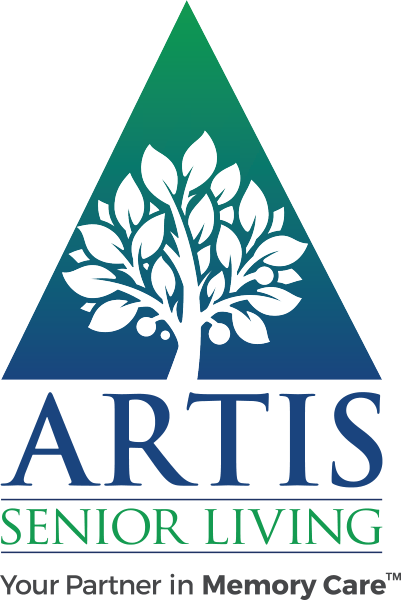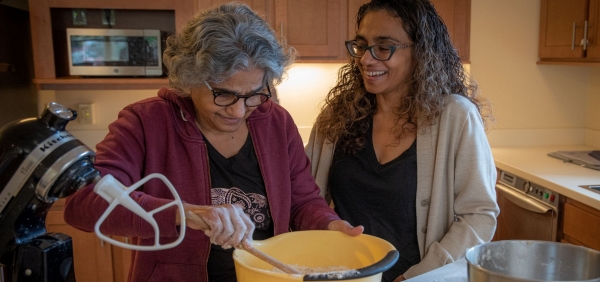What Is the Difference Between Aphasia and Dementia?

Identifying the difference between aphasia and dementia is a bit like distinguishing between a runny nose and the common cold. Just as a runny nose is a symptom of the common cold (and numerous other conditions), aphasia can be a symptom of dementia (and numerous other conditions). Here’s a closer look at aphasia and dementia and the differences between them.
What Is Aphasia?
Aphasia is marked by an inability to communicate caused by damage to areas of the brain responsible for language. Reading, talking, writing, and listening comprehension may all be affected, depending on the cause and type of aphasia. Numerous conditions may cause aphasia, including stroke, head injury, brain tumor, infection, migraine and dementia.
Two of the most common types of aphasia are:
- Broca’s aphasia. Sometimes called expressive or non-fluent aphasia, this type is marked by difficulty finding the right words when speaking. It’s caused by damage to the frontal lobe of the brain, the part known as Broca’s area, and may be accompanied by weakness or paralysis of the right arm or leg, since the frontal lobe also supports motor function. Someone with Broca’s aphasia may be able to understand speech and know what they want to say, yet they can only produce short phrases, often omitting words like “and” and “the.” Instead of saying, “Get milk at the store,” a person with Broca’s aphasia might say, “Milk store.”
- Wernicke’s aphasia. This type of aphasia, also called receptive or fluent aphasia, may be caused by damage to the Wernicke area in the temporal lobe of the brain. It’s marked by impaired comprehension and speaking in long sentences that have no meaning. Sentences may include made-up words or “word salad,” a collection of words combined in a random pattern. In one example, a clinician asks, “What’s the weather like today?” The patient with Wernicke’s aphasia responds, “Fully under the jimjam and on the altigrabber.”
What Is Dementia?
Dementia is an umbrella term for a variety of neurological degenerative disorders. These disorders are typically characterized by memory loss, impaired problem-solving, communication challenges (such as aphasia), and other symptoms of cognitive decline. Symptoms may eventually become severe enough to interfere with daily life. Alzheimer’s disease is the most common form of dementia, making up 60 to 80% of dementia cases, but other types of dementia include vascular, Lewy body and frontotemporal dementia, as well as numerous others.
Since dementia can affect the language centers in the brain, it may cause mild forms of aphasia, such as not remembering the name of a loved one or difficulty finding words. It can also cause primary progressive aphasia (PPA). This rare form of aphasia is typically diagnosed in people under age 65 and is associated with frontotemporal dementia. Finding the right word, putting words in proper order, language comprehension, and spelling may all be affected. Symptoms appear gradually, and unlike other forms of aphasia, will get worse over time.
Addressing Risk Factors
Because aphasia may be caused by a variety of conditions, including dementia, reducing your risk is primarily a matter of making healthy lifestyle choices that help you avoid those conditions. Consider the following:
- Eating a healthy diet. A diet rich in fruits, vegetables, whole grains, and legumes and low in sodium can lower the risk of stroke and dementia.
- Tending to infections. If ear or eye infections spread to the brain, they can cause damage to the communication centers of the brain.
- Managing health conditions. Poorly managed chronic conditions such as high blood pressure, epilepsy, and Type 2 diabetes can lead to additional health concerns, such as stroke, that cause aphasia.
- Wearing safety equipment. Helmets, seat belts and other gear can protect you from head injuries.
- Exercising regularly. Physical activity can help reduce the risk of dementia and manage other conditions that may lead to aphasia.
- Socializing. An active social life can prevent isolation and loneliness, which are linked to an increased risk of dementia, stroke, and other conditions.
Learn More at Artis Senior Living
If you have questions about the difference between aphasia and dementia or about navigating care options, reach out to us at Artis Senior Living. As experts in Memory Care, we can answer questions about aging and dementia care or direct you to special educational events for caregivers. You can also learn about our unique approach to Memory Care or find a community near you and discover the benefits of personalized dementia care in an intentionally designed community. Contact us to learn more or to schedule a visit.



